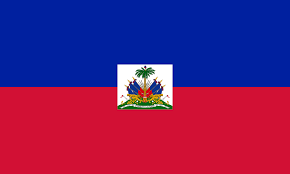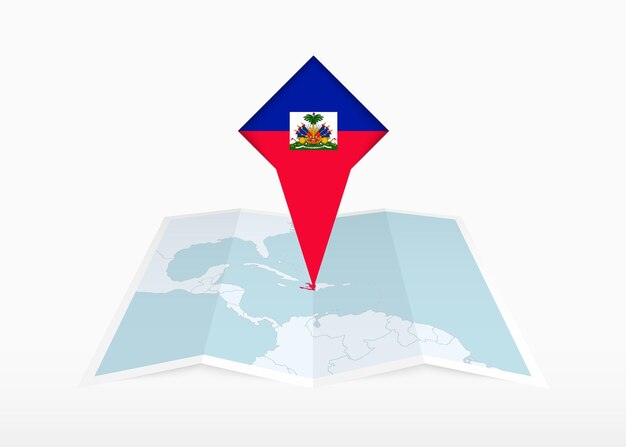From Albanian to Zulu 24/7

HAITIAN KREYOL TRANSLATION SERVICES
At worldLINK, we offer precise, high-quality, and competitively priced Haitian Kreyol translation services for a diverse range of clients, from global corporations and local businesses to individuals needing translations for legal, immigration, or academic purposes. Each translation is tailored to reflect the unique linguistic and cultural nuances of Haitian Kreyol, ensuring accuracy and efficiency in every project. worldLINK bridges language and cultural gaps seamlessly, supporting both personal and business objectives.
worldLINK HAITIAN KREYOL TRANSLATION SERVICES
HAITIAN KREYOL DOCUMENT TRANSLATION
HAITIAN KREYOL INTERPRETATION
HAITIAN KREYOL SOFTWARE AND WEBSITE LOCALIZATION

HAITIAN KREYOL LANGUAGE IN THE WORLD
Haitian Kreyol, with over 12 million speakers, is the primary language of Haiti and a significant language among Haitian diaspora communities in the United States, Canada, and the Caribbean. Rooted in French with influences from West African languages, Portuguese, Spanish, and indigenous languages, Haitian Kreyol has a unique vocabulary, syntax, and phonology. As Haiti engages more in international aid, trade, and tourism, Haitian Kreyol has become increasingly essential for effective communication and cultural connection.
CHALLENGES IN HAITIAN KREYOL TRANSLATION
Translating Haitian Kreyol requires a nuanced understanding of its structure, vocabulary, and cultural expressions. Haitian Kreyol is distinct from French, with unique grammar and idiomatic phrases that must be carefully adapted for accurate and meaningful translations. Additionally, cultural sensitivity is essential, as Kreyol often reflects Haiti’s heritage, traditions, and community values.
At worldLINK, our skilled Haitian Kreyol translators have in-depth knowledge of these linguistic and cultural nuances. We ensure each translation is technically precise and culturally relevant, making it suitable for Kreyol-speaking audiences both in Haiti and the diaspora.


worldLINK HAITIAN KREYOL INTERPRETERS
Our quality assurance process combines advanced technology with a client-centered approach, ensuring cost-effective, accurate, and timely solutions. Our three-phase process—project analysis, production, and post-production—guarantees the highest quality for every Haitian Kreyol translation project. Supported by specialized software and an online project management system, worldLINK provides efficient services tailored to meet each client’s unique needs. Our expert team is committed to delivering innovative, accurate translations of the highest quality.
INDUSTRIES IN HAITI
Haiti’s economy is developing, with several key industries that drive growth, employment, and international trade. Here are some of the main industries in Haiti
- Agriculture and Agribusiness: Agriculture is a cornerstone of Haiti’s economy, employing a significant portion of the population. Key products include coffee, mangoes, bananas, and vetiver (used in perfumes). Agribusiness is expanding with a focus on sustainable farming practices and export-quality products.
- Textiles and Apparel: The textile and apparel industry is one of Haiti’s largest export sectors, supplying clothing to international markets, particularly the United States. The industry benefits from trade agreements like the HOPE/HELP Act, which provides preferential access to the U.S. market, supporting job creation and economic growth.
- Tourism and Hospitality: Haiti’s tourism sector is growing, with attractions that include historic sites, beautiful beaches, and cultural festivals. The hospitality industry is an essential source of revenue, and the country has a developing eco-tourism sector that highlights Haiti’s natural beauty and heritage.
- Artisanal Crafts and Handicrafts: Haiti is known for its vibrant artisanal sector, producing handmade crafts, paintings, and sculptures. This industry showcases Haitian culture and craftsmanship, with products exported to international markets and sold to tourists, contributing to the local economy.
- Renewable Energy: Haiti is investing in renewable energy to address energy needs and reduce reliance on imported fossil fuels. Solar and wind energy projects are emerging as key solutions, particularly for rural and remote areas, supporting sustainable development and energy independence.
- Construction and Infrastructure: Infrastructure development is a priority in Haiti, especially following recent natural disasters. The construction industry focuses on building resilient structures, improving transportation, and expanding urban housing to meet population needs and promote economic growth.
- Healthcare and Pharmaceuticals: The healthcare sector in Haiti is developing, with ongoing efforts to improve healthcare access and quality. International partnerships support the growth of healthcare facilities, and the pharmaceutical industry is gradually expanding to supply medications domestically.
- Fishing and Aquaculture: Fishing is an essential industry in Haiti, particularly in coastal communities. The country’s aquaculture sector has the potential for growth, with a focus on sustainable practices to support food security and local employment.
- Financial Services: Haiti’s financial services sector includes banking, microfinance, and mobile payment solutions, which are crucial for financial inclusion. Microfinance institutions play a significant role in supporting small businesses and entrepreneurship, especially in rural areas.
- Education and Vocational Training: Education is a priority for development in Haiti, with a focus on improving literacy, vocational training, and access to quality education. This sector supports economic growth by equipping young people with skills and training for future employment.
